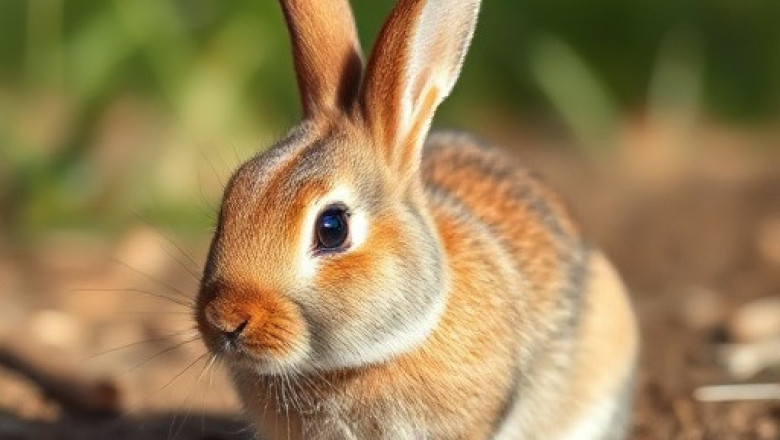How To Care For Your Lop-Eared Rabbit
Lop-eared rabbits, with their distinct drooping ears and charming personalities, make delightful pets. However, their unique physiology requires specific care to ensure their well-being. From body language to common health issues, understanding your lop-eared rabbit’s needs is crucial.
Understanding Lop-Eared Rabbits
Lop-eared rabbits are known for their long, floppy ears, which not only give them their adorable appearance but also play a significant role in their body language and health. Unlike rabbits with upright ears, lop-eared rabbits may have different ways of communicating their feelings and needs. Here’s what you need to know:
-
Ears and Body Language: Lop-eared rabbits use their ears to express themselves. While they can’t raise their ears like other rabbits, they can still move them slightly to show curiosity, relaxation, or alertness.
-
Prone to Ear Infections: The drooping ears can trap moisture and debris, making lop-eared rabbits more susceptible to ear infections.
-
Dental Problems: Their jaw structure can lead to dental issues, requiring regular checks.
-
Obesity: Like many pets, lop-eared rabbits can become obese if not fed and exercised properly.
Daily Care Routine
Creating a daily care routine for your lop-eared rabbit helps in maintaining their health and happiness. Here are some essential aspects to consider:
-
Diet:
-
Hay: The staple of a rabbit's diet, hay provides necessary fiber for digestion and helps wear down their constantly growing teeth.
-
Fresh Vegetables: Include leafy greens like romaine lettuce, kale, and parsley. Avoid iceberg lettuce as it lacks nutritional value.
-
Pellets: High-quality rabbit pellets can supplement their diet but should not be the primary food source.
-
Fresh Water: Ensure your rabbit has access to clean, fresh water at all times.
-
-
Grooming:
-
Brushing: Regular brushing helps keep their fur clean and reduces shedding. This is especially important for longer-haired breeds.
-
Ear Cleaning: Check their ears regularly for signs of infection or debris. Use a damp cloth to gently clean around the outer ear.
-
Nail Trimming: Regularly trim their nails to prevent overgrowth and discomfort.
-
-
Exercise:
-
Free Roaming: Allow your rabbit to roam in a safe, enclosed area daily to stretch their legs and explore.
-
Toys and Enrichment: Provide toys to keep them mentally stimulated and prevent boredom. Cardboard boxes, tunnels, and chew toys are excellent options.
-
Housing
Creating a comfortable and safe living environment is crucial for your lop-eared rabbit’s well-being:
-
Spacious Hutch: Ensure their hutch is spacious enough for them to move around comfortably. The hutch should have separate areas for sleeping, eating, and playing.
-
Safe Bedding: Use safe, absorbent bedding such as paper-based or straw bedding. Avoid cedar or pine shavings as they can be harmful.
-
Litter Box: Train your rabbit to use a litter box. Use rabbit-safe litter and clean it regularly.
Health and Vet Care
Regular vet visits and monitoring your rabbit’s health are essential:
-
Regular Vet Check-ups: Schedule regular check-ups with an experienced rabbit vet to catch any potential health issues early.
-
Vaccinations: Ensure your rabbit is up to date with necessary vaccinations to protect them from common diseases.
-
Signs of Illness: Be aware of signs of illness such as changes in appetite, lethargy, or unusual behavior. If you notice any, consult your vet immediately.
Bonding and Socialization
Building a strong bond with your lop-eared rabbit takes time and patience:
-
Gentle Handling: Always handle your rabbit gently. Support their body and avoid picking them up by the ears.
-
Quality Time: Spend time with your rabbit daily. Sit quietly with them, offer treats, and gently pet them to build trust.
-
Social Needs: Rabbits are social animals. If possible, consider getting a bonded pair to keep each other company.
Common Health Issues
Being aware of common health issues can help you take preventive measures:
-
Ear Infections: Due to their drooping ears, lop-eared rabbits are prone to ear infections. Regular cleaning and vet check-ups can help prevent this.
-
Dental Problems: Monitor their eating habits and check their teeth regularly. Dental issues can lead to pain and difficulty eating.
-
Obesity: Ensure a balanced diet and regular exercise to prevent obesity.
Conclusion
Caring for a lop-eared rabbit involves understanding their unique needs and providing them with a loving and supportive environment. From diet and grooming to housing and health care, each aspect plays a vital role in their well-being. By following these tips, you can ensure your lop-eared rabbit leads a happy, healthy life filled with love and companionship.

